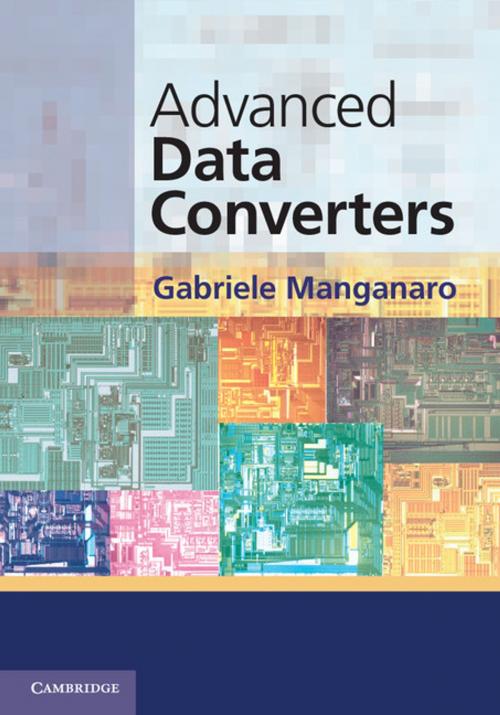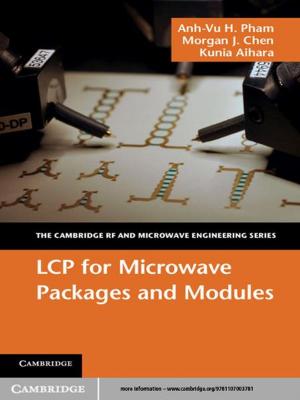| Author: | Gabriele Manganaro | ISBN: | 9781139931526 |
| Publisher: | Cambridge University Press | Publication: | November 17, 2011 |
| Imprint: | Cambridge University Press | Language: | English |
| Author: | Gabriele Manganaro |
| ISBN: | 9781139931526 |
| Publisher: | Cambridge University Press |
| Publication: | November 17, 2011 |
| Imprint: | Cambridge University Press |
| Language: | English |
Need to get up to speed quickly on the latest advances in high performance data converters? Want help choosing the best architecture for your application? With everything you need to know about the key new converter architectures, this guide is for you. It presents basic principles, circuit and system design techniques and associated trade-offs, doing away with lengthy mathematical proofs and providing intuitive descriptions upfront. Everything from time-to-digital converters to comparator-based/zero-crossing ADCs is covered and each topic is introduced with a short summary of the essential basics. Practical examples describing actual chips, along with extensive comparison between architectural or circuit options, ease architecture selection and help you cut design time and engineering risk. Trade-offs, advantages and disadvantages of each option are put into perspective with a discussion of future trends, showing where this field is heading, what is driving it and what the most important unanswered questions are.
Need to get up to speed quickly on the latest advances in high performance data converters? Want help choosing the best architecture for your application? With everything you need to know about the key new converter architectures, this guide is for you. It presents basic principles, circuit and system design techniques and associated trade-offs, doing away with lengthy mathematical proofs and providing intuitive descriptions upfront. Everything from time-to-digital converters to comparator-based/zero-crossing ADCs is covered and each topic is introduced with a short summary of the essential basics. Practical examples describing actual chips, along with extensive comparison between architectural or circuit options, ease architecture selection and help you cut design time and engineering risk. Trade-offs, advantages and disadvantages of each option are put into perspective with a discussion of future trends, showing where this field is heading, what is driving it and what the most important unanswered questions are.















